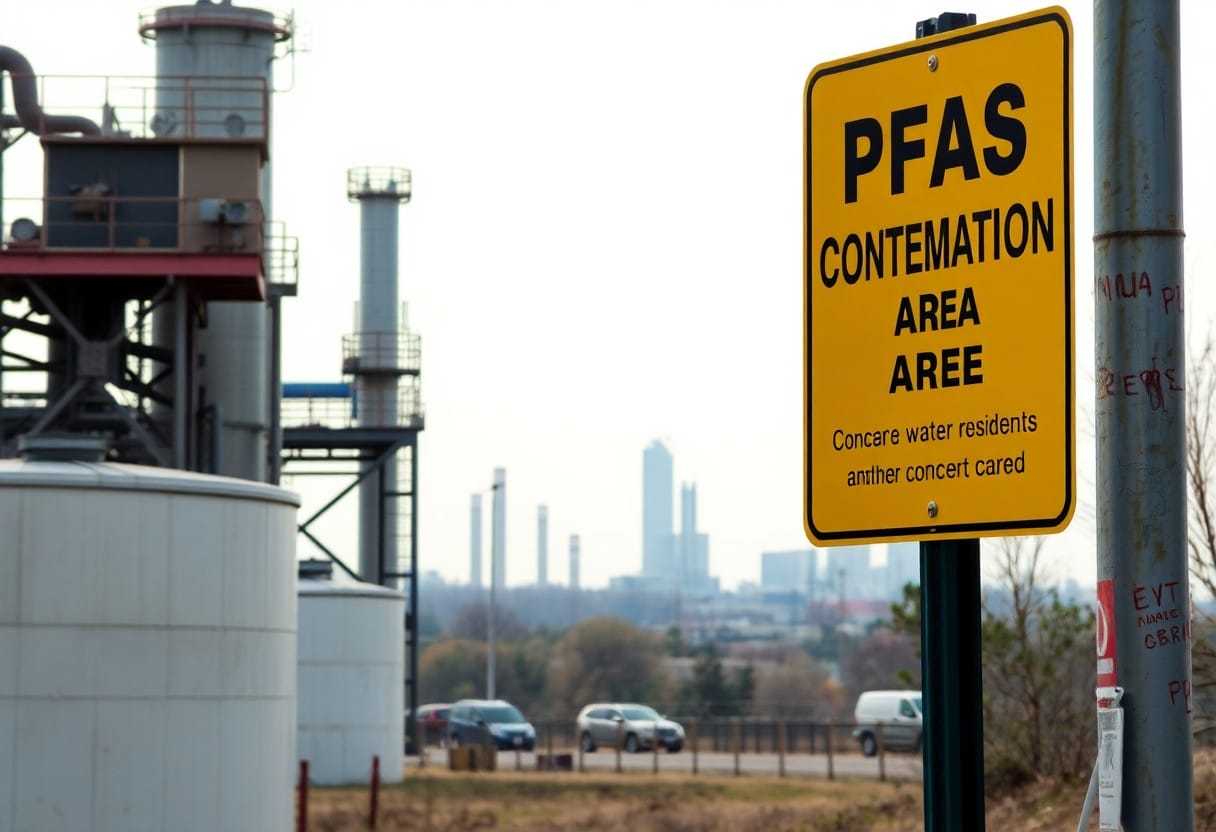Many homeowners are discovering the implications of “forever chemicals”, a term that refers to hazardous substances that persist in the environment and human bodies. As concerns grow about their effects on health and property values, you may feel uncertain about your rights and options. This guide will equip you with crucial information about ongoing lawsuits, the risks associated with these chemicals, and how you can protect yourself and your home from potential contamination. Understanding this issue is vital for safeguarding your family and making informed decisions.
Understanding Forever Chemicals
The term “Forever Chemicals” refers to a group of synthetic compounds known for their persistence in the environment and the human body. These chemicals, primarily per- and polyfluoroalkyl substances (PFAS), do not break down easily, leading to potential health risks like cancer and hormonal disruptions. As a homeowner, awareness of these substances can help you protect your family and property.
What are Forever Chemicals?
With their unique chemical structure, Forever Chemicals are resistant to water, oil, and heat, making them ideal for various industrial and consumer applications. However, their durability also means they accumulate in the environment and in human bodies, raising serious health concerns.
Common Sources and Types
There’s a wide range of products and environments where Forever Chemicals can be found. Some common sources include:
| Common Sources | Types |
| Non-stick cookware | PFAS |
| Stain-resistant fabrics | PFOS |
| Waterproof outdoor gear | PFOA |
| Firefighting foam | GenX |
| Food packaging | Various |
The knowledge of common sources can empower you to make safer choices in your home and lifestyle.
Sources of Forever Chemicals can often be hidden in everyday products. Below are examples of materials where you might find them:
- Non-stick cookware
- Stain-resistant carpets and upholstery
- Food packaging and fast food wrappers
- Waterproof jackets and shoes
- Firefighting foams
| Materials | Potential Risks |
| Non-stick cookware | Chemical exposure during cooking |
| Stain-resistant fabrics | Skin contact and inhalation |
| Food packaging | Consumption of contaminated food |
| Outdoor gear | Environmental persistence |
| Firefighting foam | Water supply contamination |
The importance of identifying these sources cannot be understated, as it can help mitigate potential health threats to you and your loved ones.
Legal Landscape
Assuming you are affected by “forever chemicals,” it’s crucial to understand the shifting legal framework surrounding these substances. Lawsuits at both state and federal levels are increasingly challenging companies for polluting environments and public health with per- and polyfluoroalkyl substances (PFAS). These legal actions can set precedents and create newfound responsibilities for manufacturers, potentially benefiting you as a homeowner seeking justice and remediation.
Overview of Current Lawsuits
There’s a growing list of lawsuits targeting various companies responsible for the production and use of PFAS. Many states have initiated class action lawsuits, while private citizens are beginning to file claims related to personal exposure. These lawsuits often aim for compensation and strict regulation of these chemicals, creating a ripple effect that could influence future legislation.
Key Legal Terms and Concepts
While navigating the intricacies of “forever chemicals” lawsuits, understanding certain legal terms and concepts is vital for your case. Terms like liability, damages, and negligence can significantly impact your claims and the legal process. Furthermore, terms like class action describe a legal mechanism that allows individuals with similar grievances to join together in a single lawsuit.
With your case, it’s crucial to grasp how liability shifts burden onto manufacturers, meaning they can be held responsible for the harm caused by PFAS. Understanding damages helps you recognize what financial compensation you might pursue, while negligence indicates a failure to take reasonable care, often making manufacturers liable. Lastly, a class action allows multiple plaintiffs, similar in their exposures, to unify their claims, potentially amplifying your voice and effectiveness in the legal arena.

Homeowner Rights
Even as a homeowner, understanding your rights is imperative when it comes to “forever chemicals” and their potential impact on your property. You have the inherent right to a safe living environment, and there are legal frameworks in place designed to protect you from contamination that may adversely affect your health and property value.
Legal Protections for Homeowners
Now, various laws and regulations exist that safeguard homeowners against hazardous substances. Federal laws, such as the Comprehensive Environmental Response, Compensation, and Liability Act (CERCLA), provide pathways for homeowners to seek remediation and compensation if their property is affected by pollutants, including “forever chemicals.”
Steps to Take if Affected
Any time you suspect your home is contaminated by “forever chemicals,” there are specific steps you should take to address the issue.
To begin, conduct thorough testing of your water and soil for the presence of these harmful substances, as this is vital for understanding the extent of contamination. If results are positive, document all findings and notify local or state health authorities. You should also consult with an attorney who specializes in environmental law to discuss potential claims against responsible parties. Keep in mind, taking prompt action not only protects your health but also strengthens your case for any future lawsuits or remediation efforts.
Factors to Consider
Your understanding of the various factors influencing forever chemicals lawsuits is vital. Keep in mind the following considerations:
- Location of your property
- Exposure levels to PFAS
- Local water sources and their quality
- History of industrial activities in your area
Thou should assess these elements to make informed decisions regarding your legal standing.
Assessing Your Home’s Risk
Little assessment of your home’s exposure to forever chemicals can significantly impact your health and property value. Analyze your water quality and check for contamination levels in soil and air around your home. Engaging professionals for testing may provide accurate insights into potential risks you face.
Identifying Local Regulations
Any local regulations governing the use and presence of forever chemicals in your area can influence your legal position. Understanding these laws is imperative for navigating possible lawsuits or remediation efforts.
Identifying local regulations involves researching state and municipal laws related to PFAS management in water and soil. Many regions have begun to implement strict limits on these chemicals due to their associated health risks. By being aware of your area’s permissible limits and reporting standards, you can effectively safeguard yourself and prepare for potential legal actions.
Tips for Homeowners
Keep your home safer by taking proactive steps against forever chemicals. Consider the following tips:
- Regularly test your water supply for PFAS contamination.
- Research local environmental resources regarding pollution levels.
- Invest in filtration systems designed to reduce chemical exposure.
- Stay informed about lawsuits related to forever chemicals in your area.
Perceiving potential risks can lead you to healthier home decisions.
Preventative Measures
Clearly, understanding how to limit exposure to forever chemicals is important. Start by using products labeled as PFAS-free and avoid non-stick cookware. Opt for glass or stainless steel alternatives, and choose natural cleaning products when possible. Being cautious with the items you bring into your home can minimize your exposure to harmful chemicals.
Best Practices for Cleanup
Cleanup is vital when dealing with forever chemicals in your home. Make sure you take immediate action to prevent spreading contamination. Use protective gear such as gloves and masks while handling affected items. Dispose of contaminated materials according to local regulations. It’s also advisable to clean surfaces with a strong detergent to ensure effective removal of residues. Lastly, consider consulting a professional for thorough decontamination.
With the increasing awareness of forever chemicals, it’s important to approach cleanup with care. Utilize a dedicated cleanup kit, which should include HEPA filters and specialized cleaning agents designed to tackle these persistent pollutants. Contact local waste management services for guidance on proper disposal of contaminated items. Don’t underestimate the need for thorough ventilation during the cleanup process to avoid inhaling harmful particles. By following these guidelines, you can significantly reduce health risks and foster a safer living environment.
Pros and Cons of Legal Action
To help you make an informed decision, here are the advantages and disadvantages of pursuing legal action against the manufacturers of “forever chemicals.”
| Pros | Cons |
|---|---|
| Potential for financial compensation | High legal costs |
| Increased public awareness | Time-consuming process |
| Accountability for polluters | Emotional stress |
| Possible health monitoring | Uncertain outcomes |
| Strengthening of regulations | Limited access to legal resources |
Benefits of Pursuing a Lawsuit
An effective lawsuit can serve as a tool for you to seek justice and potentially receive financial compensation for damages caused by exposure to harmful “forever chemicals.” It can also raise public awareness and hold manufacturers accountable for their actions, potentially driving changes in regulations to ensure safer practices.
Potential Drawbacks and Risks
Assuming you proceed with legal action, it’s important to be aware of the potential drawbacks and risks involved.
For instance, pursuing a lawsuit can entail significant legal costs, which may strain your finances, especially if the case drags on. You might also experience emotional stress from the lengthy process and uncertainty surrounding the outcome. Additionally, finding access to adequate legal representation can be challenging, as not all lawyers are experienced with environmental contamination cases. Weighing these factors against the possible benefits can help you decide the best course of action in seeking justice.
Conclusion
Ultimately, understanding the implications of “Forever Chemicals” lawsuits is crucial for you as a homeowner. Awareness of the potential health risks and environmental impacts can empower you to take informed action regarding your living space. By staying educated on your rights and the legal avenues available, you can better navigate any challenges that may arise and advocate effectively for the safety and well-being of your household.


















